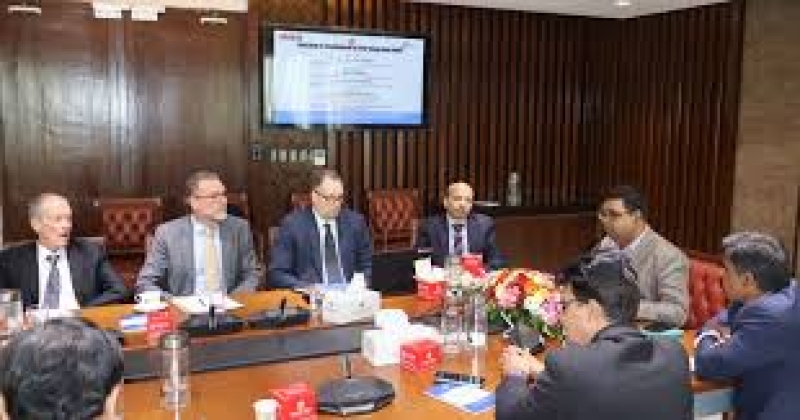- Khaleda now not fit for travelling: Medical Board |
- Panchagarh records lowest temperature 10.5°C so far this year |
- Christmas returns to Bethlehem after two years of Gaza war |
- কলাপাড়া মুক্ত দিবসে এবার সাড়া নেই কার |
- One killed, two injured in attack at Ctg meeting over marriage |
IMF, WB propose unified debt management office in Dhaka

A joint International Monetary Fund (IMF) and World Bank technical assistance mission has recommended the establishment of a unified Debt Management Office (DMO) in Bangladesh to strengthen the country’s public debt management framework and reduce fiscal and operational risks.
The proposal was presented at a workshop titled “Establishing a Debt Management Office”, held on Monday at the Finance Division in Bangladesh Secretariat, Dhaka, said a media release issued on Tuesday.
The Scheme on Strengthening the Capacity of Treasury and Debt Management Wing of the Finance Division under Strengthening Public Financial Management to Enable Service Delivery (SPFMS) organized the workshop.
The mission observed that Bangladesh’s current debt management functions are fragmented across multiple government agencies, resulting in coordination gaps, inconsistent debt data, and challenges in formulating and executing a comprehensive debt management strategy.
It also highlighted the absence of a centralized and audited debt database and the lack of a formal cash flow forecasting mechanism—both considered essential for guiding an informed and cost-effective government borrowing.
Md. Hasanul Matin, Additional Secretary (Administration, Planning & TDM), Finance Division, attended the workshop as the Chief Guest.
Special guests included Dr. Ziaul Abedin, Additional Secretary (Budget-1) and National Program Director of SPFMS, and Hasan Khaled Foisal, Additional Secretary (Macroeconomics-1), Finance Division.
The session was presided over by Mohd Rashedul Amin, Joint Secretary of the Treasury and Debt Management Wing. The IMF–World Bank mission was led by Arindam Roy, Senior Financial Sector Expert, accompanied by Dr. Jens Clausen, Philip R. D. Anderson, and Per Jonsson.
Expert opinion was also made by Md. Monzorul Haque, Joint Secretary (Expenditure Management), Finance Division, and Abu Daiyan Mohammad Ahsanuallah, Joint Secretary, Economic Relations Division.
In its presentation, the mission proposed consolidating all government and government-guaranteed debt functions under the Finance Division, beginning with the restructuring of the Treasury and Debt Management Wing.
In the initial phase, the proposed DMO would oversee domestic debt issuance, develop annual borrowing plans, coordinate auction calendars, undertake portfolio risk assessments, and build a unified debt database by integrating existing systems and data repositories. The mission emphasized the need for a clear legal framework to define borrowing authority, accountability, reporting responsibilities, and transparency standards, reads the release.
To ensure professional execution, the mission recommended specialized staffing for the DMO, particularly personnel experienced in capital markets, pricing, settlement operations, and risk management.
It noted that such expertise could be sourced from Bangladesh Bank, commercial banks, and the capital market. However, to retain skilled professionals, the government would need to introduce competitive compensation and career development pathways.
The experts stated that, over the medium term, the DMO could evolve into a more autonomous entity with expanded functions, including contingent liability oversight and investor relations management. International experience, presented during the workshop, showed that many countries shifted to centralized DMOs since the 1980s to reduce borrowing costs and risks, strengthen fiscal transparency, and improve the separation between debt management and monetary policy operations. The mission highlighted that successful DMOs generally operate through three core units—front office (borrowings and market transactions), middle office (risk and strategy), and back office (settlements data administration, accounting and reporting), according to the release.
The mission concluded that establishing a DMO will require strong political commitment, phased restructuring, investment in modern IT systems, and sustained coordination across government institutions. Once operational, the unified DMO is expected to enhance market confidence, lower financing costs and risks, and reinforce Bangladesh’s long-term fiscal stability, reports UNB.

